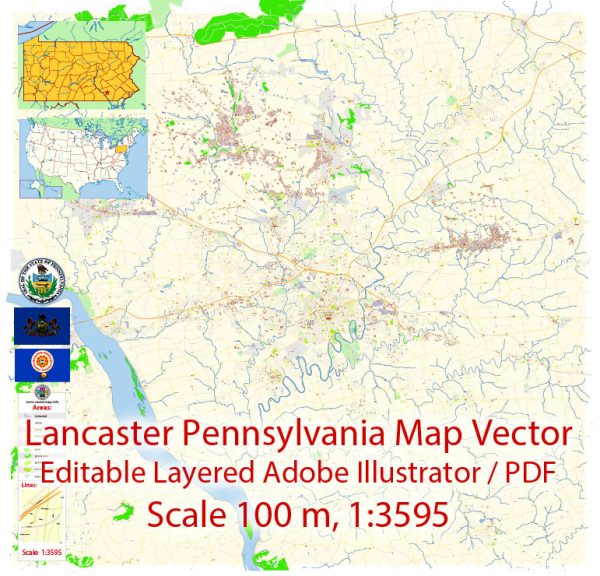Lancaster, Pennsylvania, is a city known for its rich history, diverse economy, and strong industrial presence. The industrial landscape of Lancaster includes various sectors that have contributed to the city’s growth and prosperity. Here’s an overview of some key industrial aspects in Lancaster:
- Agriculture and Farming: Lancaster County is often referred to as the “Garden Spot of America” due to its fertile soil and a strong tradition of farming. Agriculture plays a significant role in the local economy, with a focus on crops like corn, wheat, soybeans, and tobacco. The area is also known for its Amish and Mennonite communities, who engage in traditional farming practices.
- Manufacturing: Lancaster has a diverse manufacturing sector, with companies involved in producing a wide range of goods. This includes food processing, machinery manufacturing, textiles, plastics, and fabricated metal products. Many small and mid-sized manufacturing businesses thrive in the region.
- Food Processing: The city is home to several food processing companies, particularly in the snack food industry. Well-known snack food companies have their headquarters or production facilities in Lancaster, producing products like pretzels, chips, and other snacks.
- Medical and Health Services: Lancaster boasts a thriving healthcare industry. It is home to several hospitals, medical research facilities, and pharmaceutical companies, contributing significantly to the region’s economy.
- Technology and Innovation: Lancaster has seen a growing presence of technology and innovation companies. Startups, software development firms, and tech-related businesses are becoming increasingly important, diversifying the local economy.
- Tourism and Hospitality: The city’s tourism sector is also a vital component of the economy, driven by attractions like the Amish culture, historic sites, and beautiful countryside. Accommodation, restaurants, and entertainment venues cater to the needs of tourists.
- Retail and Wholesale Trade: Lancaster’s retail and wholesale sectors play a substantial role in the local economy. The city features numerous shopping centers, markets, and commercial districts, offering a wide range of products and services.
- Transportation and Warehousing: Due to its strategic location along major transportation routes, Lancaster serves as a hub for transportation and warehousing activities. The city has several distribution centers and logistics companies that facilitate the movement of goods within the region.
- Construction and Real Estate: The construction and real estate sectors have experienced growth as the city expands. Numerous residential and commercial developments have been built, creating opportunities for construction and real estate-related businesses.
- Education and Research: Lancaster is home to educational institutions, including universities and colleges, which contribute to research and development efforts in various fields.
The industrial landscape in Lancaster, Pennsylvania, has evolved over time, with a mix of traditional and emerging industries. This diversity has contributed to the region’s economic resilience and its status as a vibrant and growing city.


 Author: Kirill Shrayber, Ph.D. FRGS
Author: Kirill Shrayber, Ph.D. FRGS